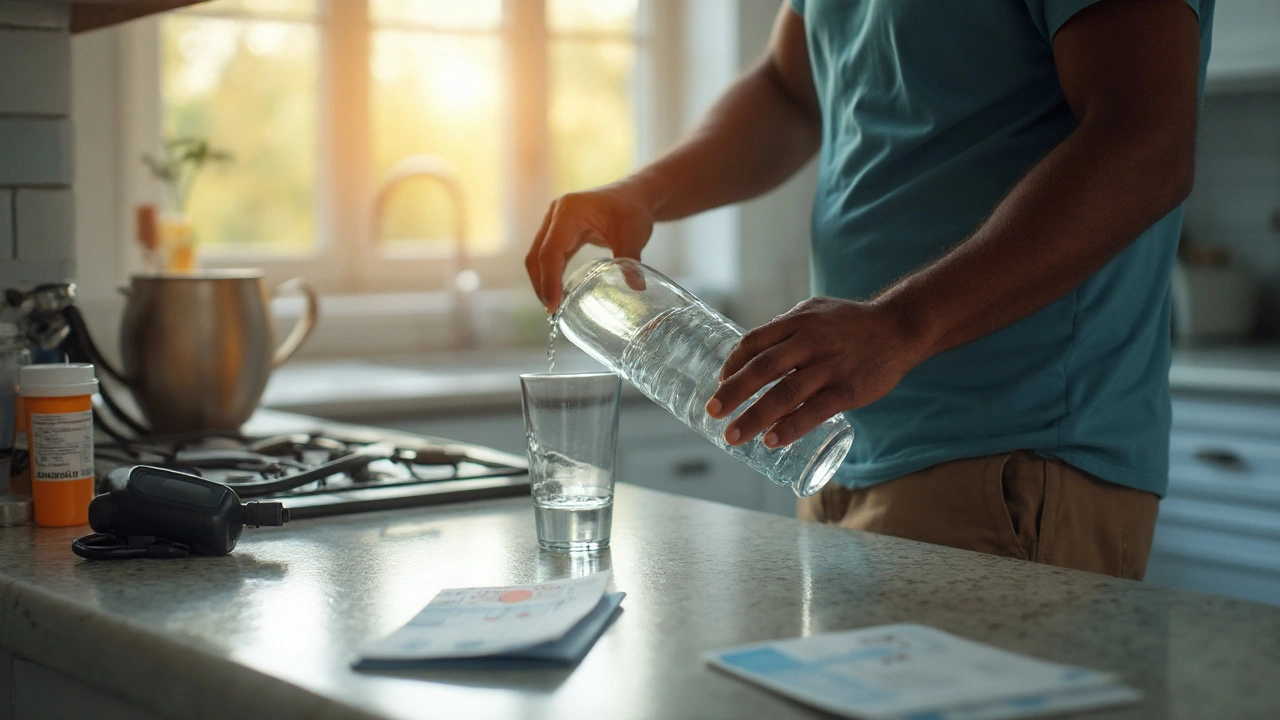
On lisinopril? Learn how dehydration affects blood pressure and kidneys, how much to drink, heatwave tactics, sick‑day rules, and when to call your doctor.
If you’re taking an ACE inhibitor for high blood pressure or heart failure, you might have heard that these drugs can make you lose extra water. That’s not a myth – some people do feel more thirsty, dizzy, or light‑headed because the medication can lower blood pressure enough to push fluid out of the bloodstream. The good news? It’s usually easy to spot and simple to fix.
ACE inhibitors block an enzyme that narrows blood vessels. When the vessels relax, blood pressure drops, and the kidneys respond by getting rid of more sodium and water. This diuretic effect helps control fluid overload in heart failure, but it can also leave you a bit dry if you don’t drink enough. The effect is strongest when you start a new dose, when you’re on a high dose, or if you combine the drug with other diuretics.
Typical signs are easy to recognize: sudden thirst, dry mouth, dark urine, fatigue, or a feeling that you might faint when you stand up. Some people notice a mild headache or muscle cramps. If you’re on a low‑sodium diet, the symptoms can show up faster because there’s less salt to hold water in the bloodstream.
When you feel any of these, check your urine color – a light straw shade means you’re probably fine, while amber or brown hints you need more fluids. Also, keep an eye on your weight; a drop of a pound or two in a day can be a red flag for fluid loss.
Quick fixes include drinking a glass of water as soon as you notice thirst, and aiming for at least 8 cups (about 2 liters) a day unless your doctor says otherwise. If you’re exercising, add electrolytes – a pinch of salt or an oral rehydration solution can balance the extra sodium loss.
Sometimes you’ll need to adjust the medication. Talk to your doctor if dehydration symptoms keep popping up, especially after a dose change. They might lower the ACE inhibitor dose, switch you to a different blood‑pressure drug, or add a mild diuretic that’s easier on water balance.
When to call a professional: If you feel dizzy for more than a few minutes, have rapid heartbeat, confusion, or can’t keep any fluids down, seek medical help right away. Severe dehydration can cause kidney issues and make blood pressure drop dangerously low.
In daily life, set a reminder on your phone to sip water every hour, keep a refillable bottle at your desk, and check your urine color before bedtime. It’s a tiny habit that stops a small problem from becoming a big one.
ACE inhibitors are powerful tools for heart health, and staying hydrated keeps them working the way they should. By listening to your body, drinking enough fluids, and keeping an open line with your doctor, you can enjoy the benefits of the medication without the uncomfortable side effect of dehydration.

On lisinopril? Learn how dehydration affects blood pressure and kidneys, how much to drink, heatwave tactics, sick‑day rules, and when to call your doctor.